Have you wondered why do dogs howl in their sleep?
Sleep is a subject that has always fascinated me, whether for humans, dogs, or any other type of animal.
Sometimes, they let out a little bark, or maybe their little paws get moving so fast – it’s so cute and adorable.
But what happens when a dog starts to howl in its sleep?
Dogs howl in their sleep simply because they are dreaming. Howling in sleep often signifies that your dog has an unpleasant dream. Sometimes, the howling may be combined with barking or even growling. This is nothing to be concerned about; they simply express their emotions within their dream.
Today we will delve a little further into the subject and cover common questions such as:
- What does it mean when a dog howls in its sleep?
- What should you do if your dog howls in its sleep?
- What does it mean when a dog howls in general?
- What superstitions are related to howling?
So let’s not waste time- let’s answer our first question!
What Does It Mean When Dogs Howl In Their Sleep?
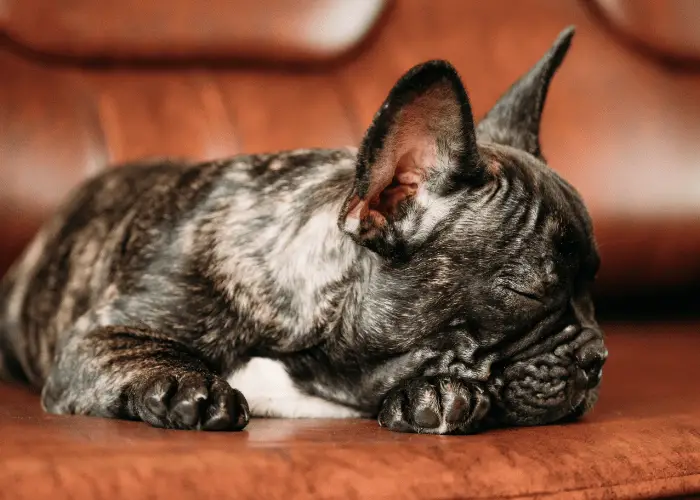
Below are the most probable reasons:
- If your dog is sleeping, it’s unlikely that any howling is a form of communication or anxiety.
- There’s a slight chance your dog may be in pain, but it isn’t very likely.
- Most commonly, if a dog is howling in its sleep, it’s just dreaming.
Just as humans dream, so do dogs.
The two of us have very similar sleep cycles.
REM (Rapid Eye Movement) is a portion of the sleep cycle that humans and dogs experience when dreams become the most intense.
Most dogs fall into REM sleep about 20 minutes after falling asleep. You will most likely hear your dog barking, moving its feet, or howling during this time.
Again, just as humans dream, so do dogs, and just as humans have unpleasant dreams, so do dogs.
What To Do When Your Dog Howls In Its Sleep?
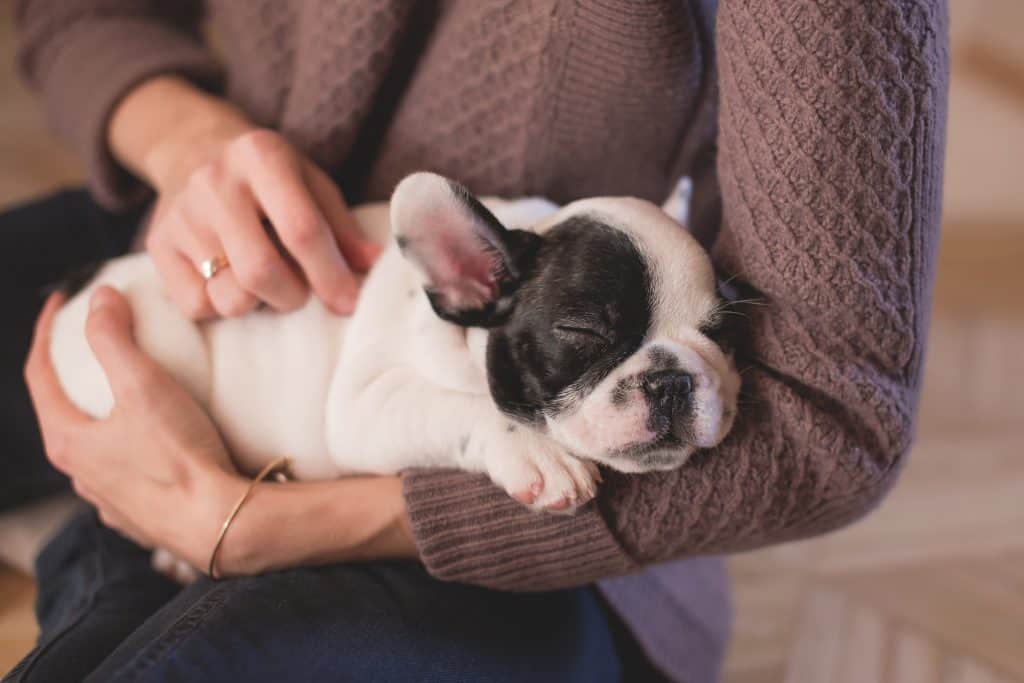
- The first thing to do if you notice your dog is howling in their sleep is to make sure they are actually sleeping. As we mentioned earlier, howling when awake can signify that your dog is in some pain, so your first goal is to rule this out as a possibility.
- If you have determined that your dog is, in fact, sleeping, let them be.
Of course, after learning howling in sleep can be a sign of a nightmare, your first reaction may be to wake your sleeping pooch to “save them” from the nightmare. But avoid doing this.
Have you ever heard the saying, “Let sleeping dogs lie?” Well, that is the best advice that can be given here.
Dogs that are startled out of sleep, especially during a nightmare, may engage in reactive behaviors that are not usual for them.
Even the kindest, most gentle dogs may engage in a reactive snip or bite when awoken from a nightmare.
Remember, dreaming isn’t hazardous for your dog; nothing terrible will come from an unpleasant dream.
Unless your dog is keeping the household awake, avoid waking them up and let them get their rest.
What Does Dog Howling Mean?
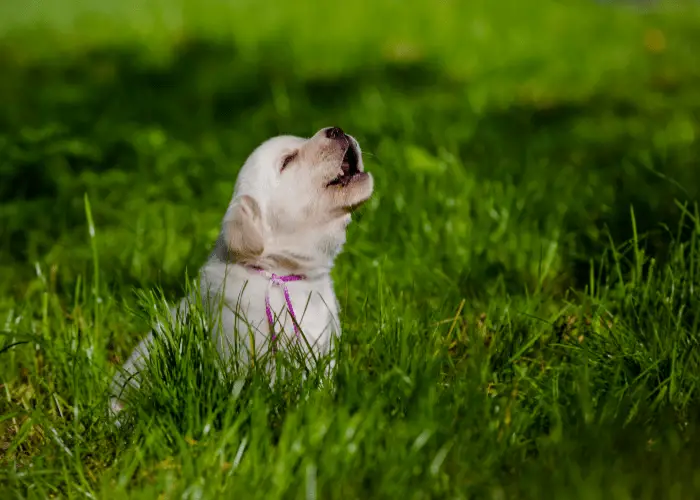
Just as humans communicate, so do dogs – and howling is one form of communication they may use.
There are many different reasons that a dog may begin howling, but the reason they howl at all can be traced directly back to their ancestors.
Think about it – dogs are distant relatives of wolves, and what do wolves do?
They howl.
And though dogs have evolved dramatically from their ancestors over time, they still have certain traits genetically embedded into their system – and one of those traits is howling.
So as long as howling is not chronic or invasive, it’s completely normal.
That’s how dogs develop their howl, but what does it mean when they start to do it?
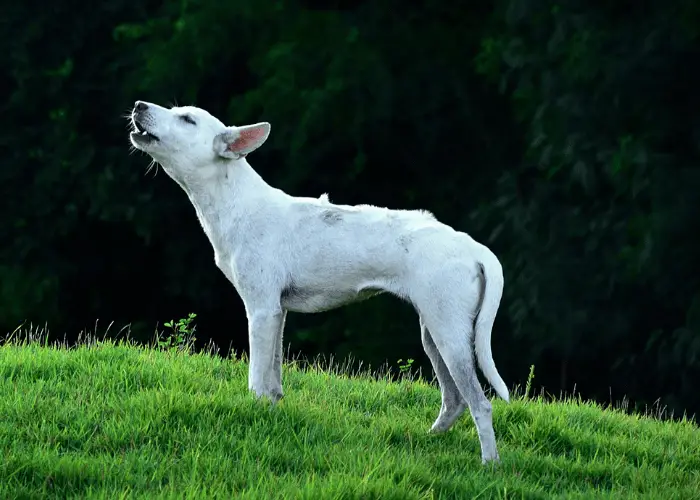
Sometimes, howling may simply be a way for your dog to communicate. In the wild, wolves use howling to communicate with one another.
They might howl, for example, to tell other wolves of their location or to ward off other animals that may be encroaching on their territory.
This is why you might often hear two domesticated dogs howling to one another or why your dog might start howling if someone unknown is nearby.
It’s also not uncommon for dogs to mistake sirens as other dogs call for help, so you may also find them howling when a fire truck or ambulance drives by.
If howling is persistent, however, there may be something else going on. Howling can also be a sign of sickness or injury or separation anxiety.
If your dog often howls in your absence, you are probably dealing with separation anxiety, and appropriate measures should be taken to soothe your pet when you leave the house.
If your dog is howling and making strange noises out of the blue, they could be hurt or in pain – take them to the vet immediately to diagnose the concern.
Dogs Howling In Their Sleep Superstition
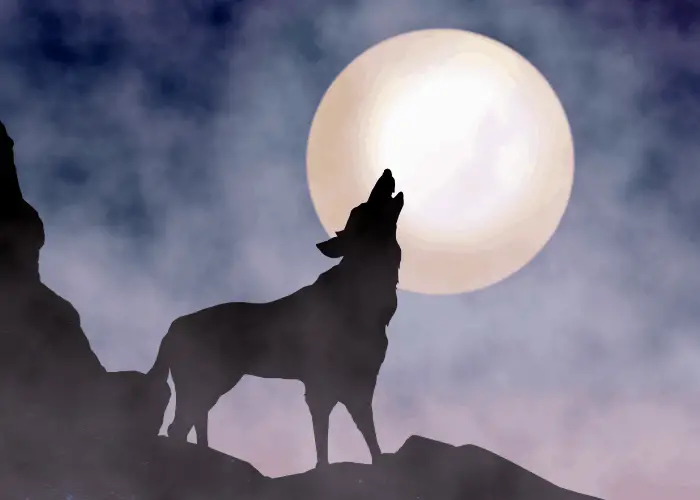
We’ve all seen movies where the howling of a dog foreshadows a horrible event.
But superstitions such as these go far beyond the movies and stem from real superstitions that people have worldwide.
Most commonly, people associate the dog howl with death. This association comes from the long-standing belief that dogs have supernatural or psychic abilities, which many different cultures have long held for centuries.
While the exact origins of this belief are unknown, many think that the association between dog howling and death started in ancient Egypt.
People who died were thought to be taken care of by the God of Anubis, who the Egyptians depicted as having a dog’s head.
When a dog howled, it was believed that the dog was calling Anubis to deliver a soul.

Of course, Ancient Egyptians weren’t the only ones to make associations between dogs and death:
- In Ireland, it is believed that dogs howl when they hear a phantom pack of hounds that collect the souls of the dying.
- The Ancient Norse believed that a howling dog was a sign that the Goddess of Death (Freyja) was approaching her chariot carried by giant cats.
- Ancient Greece believed that a howling dog signified that Goddess Hectate was at a crossroads and imminent death was impending.
But superstitions about dog howls aren’t limited to faraway times and places; they also have roots in the Southern United States.
Today, many old-timers still living in the area believe that a dog will tell them when their time is coming.
Legend says that if a dog howls twice, it’s a male soon to face death – if it’s three howls, it’s a female.
Exactly who is about to die is determined by the dog’s direction during the howl.
Believers of superstition say that your time is next if a dog looks straight at you and howls.
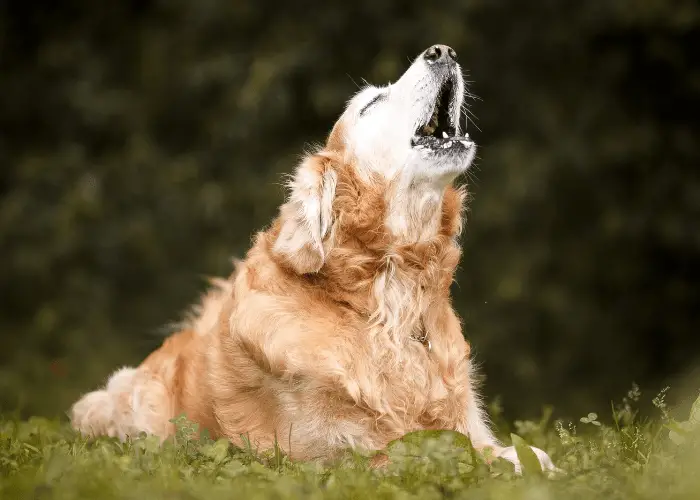
Aside from dogs and death, many other people believe that:
- the howl of a dog may mean that spirits have been released,
- supernatural events are about to take place,
- illness or bad luck is headed your way.
Whether you believe in these superstitions is up to you, but today we know that howling can signify several things such as communication, pain, or anxiety.
Conclusion:
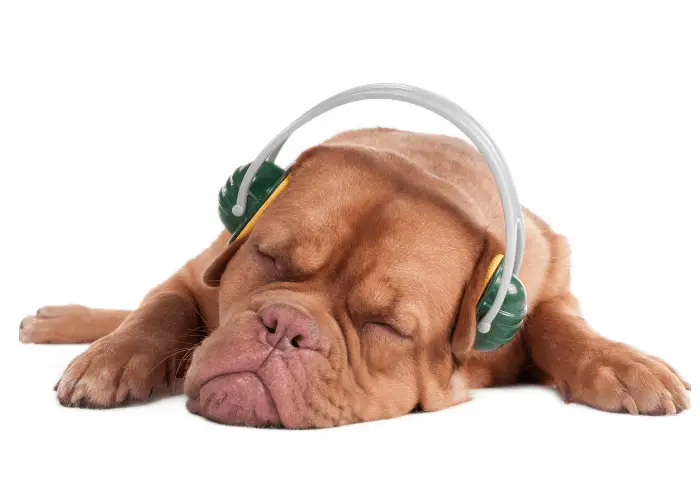
In summary, there is no cause for concern if your dog is howling in their sleep – they simply have a dream.
Howling can be a sign of other things if your dog does it while awake.
In my opinion, dogs have a sixth sense, but that is unlikely what is happening here.
If your dog is howling while awake, don’t panic, you aren’t going to face imminent death.
Much more likely, your dog is suffering from some form of anxiety or maybe in pain – take them to the veterinarian immediately to diagnose any causes for concern.
I’d love to know your thoughts…
You’ll find more dog pros and cons questions in the links below:

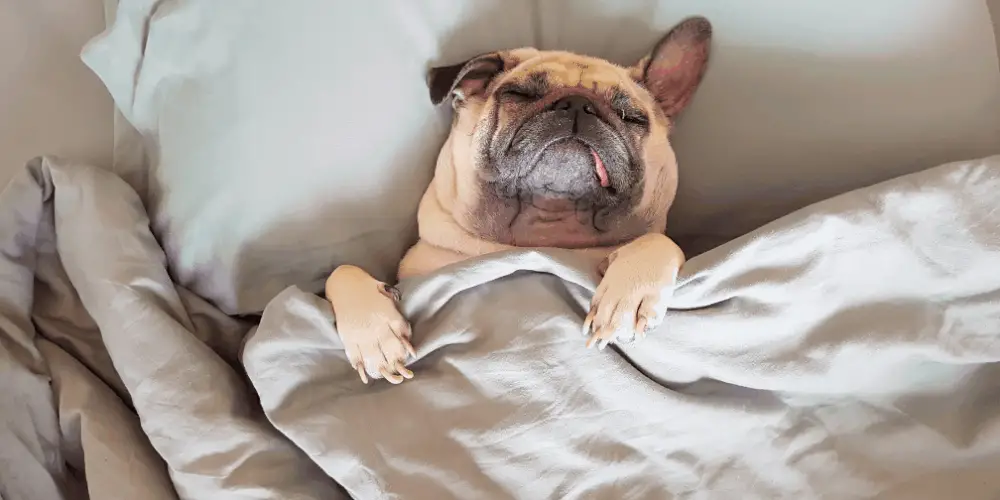
There is nothing to worry…Thanks Dave!
My rat terrier has howled in his sleep for years. Living in an apartment complex has made us worry we will be evicted if people complain. He bowls loud and long. Do you think we should try having him sleep in a different family members room? I get up a lot in the night due to a medical condition and may be waking him too.
Your dog howling in his sleep is beyond your control Heather. If your dog doesn’t have separation anxiety issues, he can sleep in the other room.